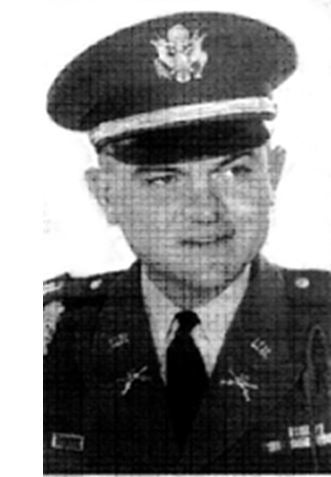- Lieutenant Colonel
- Vietnam - Honorary
Biography
Lieutenant Colonel Richard S. Schott was inducted as an “Honorary Member” into the University of Rhode Island Army ROTC Hall of Fame.
Lieutenant Colonel Richard S. Schott was a native of Brooklyn, New York. He was a 1954 graduate of Syracuse University and was commissioned as a Second Lieutenant of Infantry. From 1963-1966, Major Schott was an Assistant Professor of Military Science at the University of Rhode Island. Following this assignment, he was assigned to Fort Bragg, North Carolina where he qualified as a member of the U.S. Army Special Forces. His next assignment was as a Military Advisor in Vietnam.
Lieutenant Colonel Schott and seven other soldiers were serving with Advisor Team 70, Military Assistance Command, and manning a tactical operations center in the spring of 1972 when it came under attack by North Vietnamese Forces. The battle raged for two days until the North Vietnamese tanks broke thru the defensive perimeter. Lieutenant Colonel Schott was killed on 7 April 1972. Lieutenant Colonel Schott was the only one of the eight killed during the attack. Six of Schott’s comrades were captured by the North Vietnamese; one later escaped.
Lieutenant Colonel Schott was initially reported as missing in action in 1972. One year later, the family learned that he had been killed in action. Captain Mark Smith, who had been taken captive during the raid on Loc Ninh, reported upon being released that he had seen Lieutenant Colonel Schott “slumped over with a bullet wound to the head.”
In 1989, the Socialist Republic of Vietnam repatriated to the United States 21 boxes purported to contain the remains of U.S. servicemen. A portion of the repatriated remains believed to be associated with Lieutenant Colonel Schott’s death were shipped to the Army’s Central Identification Laboratory in Hawaii. In 2000 and 2001, a resurvey of the Loc Ninh site unearthed other remains that were also sent to Hawaii. First Sergeant Christopher Schott, the son of Lieutenant Colonel Schott was an Army Ranger stationed in Hawaii at that time.
He visited the lab to see what he could find out about his father’s remains. To his surprise, two of the men working at the lab knew his father. One had played lacrosse for his dad at the University of Rhode Island. The other served under Lieutenant Colonel Schott. Armed with DNA evidence from Lieutenant Colonel Schott’s brother Stephen, the Army went back to the Loc Ninh site, found other evidence, and matched the DNA sample with a jawbone found there. The family was officially notified of the positive match in February 2004. The military funeral brought closure to what had been a decades-long search for his father.
Christopher Schott said he was grateful to the tireless efforts of the Army to recover and identify the remains of servicemen around the world. He said, “They took all these exhaustive measures to check and recheck, making sure they had covered every base. This was an exact science, and these people take handling the remains of our war dead very seriously.”
Lieutenant Colonel Schott’s awards include include the Combat Infantry Badge with Star, Silver Star, Bronze Star with Oak Leaf Cluster, Air Medal and the Army Commendation Medal.
Though he was not a product of the URI Army ROTC program, Lieutenant Colonel Schott was elected to its Hall of Fame as an Honorary Member due to his association with URI as a faculty member. He was recognized for his extraordinary gallantry and as a military instructor who gave considerably of his time and resources to the betterment of the ROTC program at the University of Rhode Island. Lieutenant Colonel Schott’s heroism in combat is in the finest traditions of the military and reflects great credit upon himself, his family and the University of Rhode Island.
Lieutenant Colonel Richard S. Schott was buried with full military honors on 7 April 2004 in Elmwood Cemetery, Shepherdstown, West Virginia. Now for a second time, 7 April became a very important date for the Schott family.

